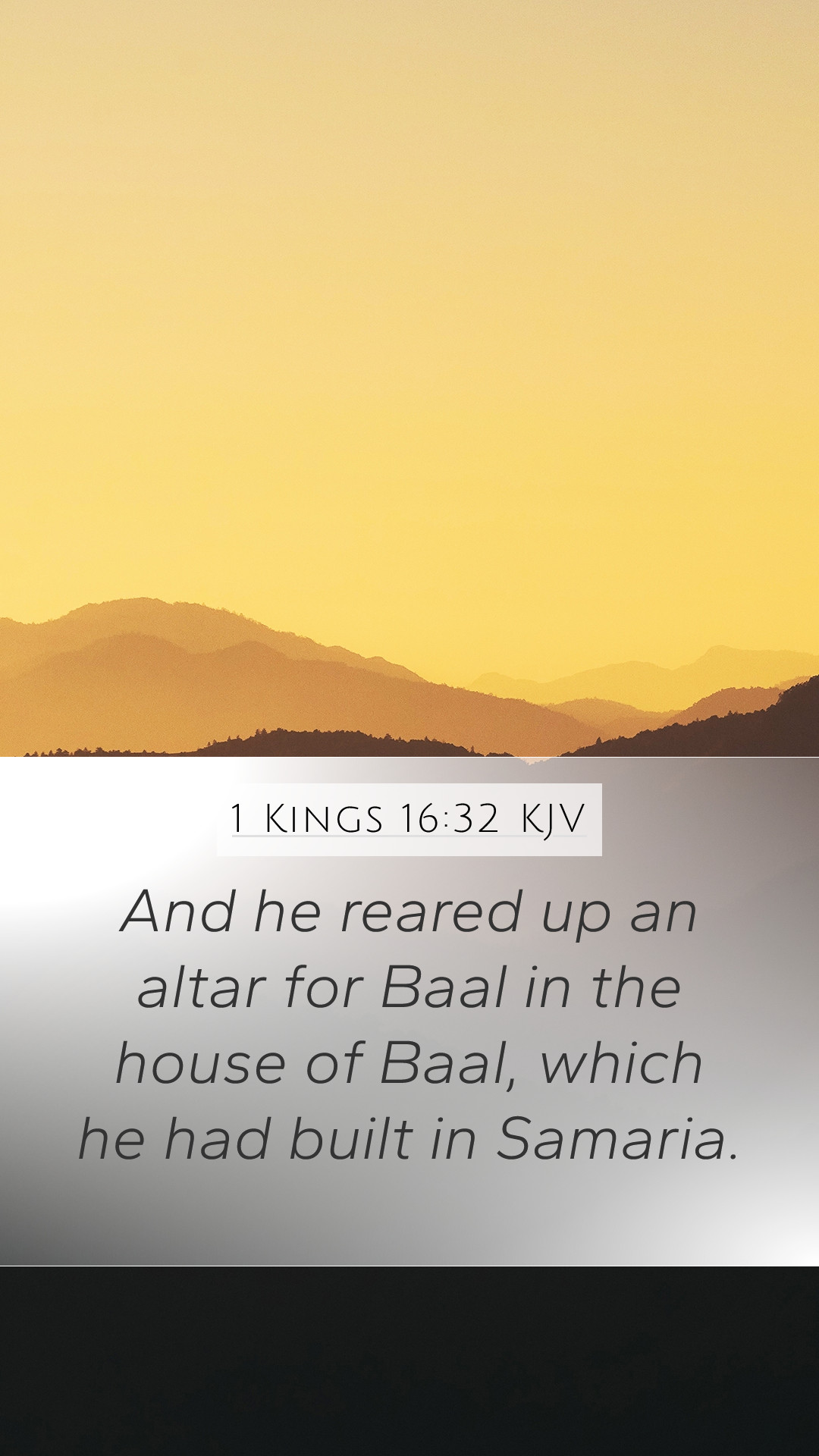Bible Verse Commentary on 1 Kings 16:32
Bible Verse (1 Kings 16:32): "And he reared up an altar for Baal in the house of Baal, which he had built in Samaria."
This verse captures a pivotal moment in the history of Israel during the reign of King Ahab, marking a descent into idolatry and the worship of false gods. Understanding this verse requires an exploration of its biblical context, significance, and implications through a blend of insights from respected commentaries.
Understanding the Context
The historical backdrop showcases Ahab's reign, characterized by a deepening apostasy within Israel. Ahab, influenced by his wife Jezebel, sought to promote the worship of Baal, a Canaanite deity. This act of erecting an altar signifies not just a personal choice but a national shift away from the worship of Yahweh.
Bible Verse Meanings
This verse exemplifies several key themes in biblical scripture:
- Idolatry: Ahab's actions exemplify a widespread rejection of the covenantal relationship established with God.
- Influence of Leaders: The verse illustrates how leaders impact the faith and practices of their people, often leading them away from righteousness.
- Consequences of Sin: The building of the altar foreshadows the judgment Israel would face due to its betrayal of God.
Commentary Insights
Matthew Henry's Commentary
Matthew Henry emphasizes Ahab's gross transgression in leading the people into idolatry. He notes that Ahab's actions were not merely personal sins but rather a state-sanctioned promotion of Baal worship, which he describes as a significant violation of God’s commands.
Albert Barnes' Commentary
Albert Barnes explains the gravity of Ahab's decision to construct an altar for Baal in Samaria. He points out the theological implications—placing a false god in the center of Israel signifies a direct challenge to the sovereignty of Yahweh. Barnes also highlights how this act reflects the spiritual decline and moral corruption permeating society at that time.
Adam Clarke's Commentary
Adam Clarke interprets this verse as indicative of the active promotion of idolatry under Ahab’s rule. He discusses the cultural pressure and the desire for political alliances that often led to the blending of worship practices. Clarke further notes that building such an altar was not an isolated act but part of Ahab’s broader strategy to consolidate power and secure loyalty from pagan factions within the region.
Significance and Application
This verse carries significant implications for modern believers, exemplifying the necessity of fidelity to one's faith. As observed in Ahab's time, the allure of surrounding cultures can lead individuals and communities to compromise their beliefs.
Lessons for Today
- Beware of Compromise: Followers of Christ must consciously guard against influences that challenge their devotion to God.
- The Role of Leadership: Understanding that leadership carries a weighty responsibility, both in spiritual and secular realms.
- Cultural Temptations: Acknowledge the reality of cultural pressures that can lead to spiritual drift.
Related Bible Cross References
- 1 Kings 18:21 - Elijah confronts the people about their divided loyalties.
- Deuteronomy 5:7-9 - God's command against idolatry.
- 2 Kings 17:16 - The ongoing issue of idolatry in Israel.
Conclusion
As we explore the meaning of Bible verses like 1 Kings 16:32, we gain valuable Bible study insights that illuminate not only the historical context but also provide practical applications for our spiritual lives today. With lessons drawn from reputable Bible verse commentaries, this text serves as a reminder of the ever-present need for faithfulness and vigilance in our walk with God.


